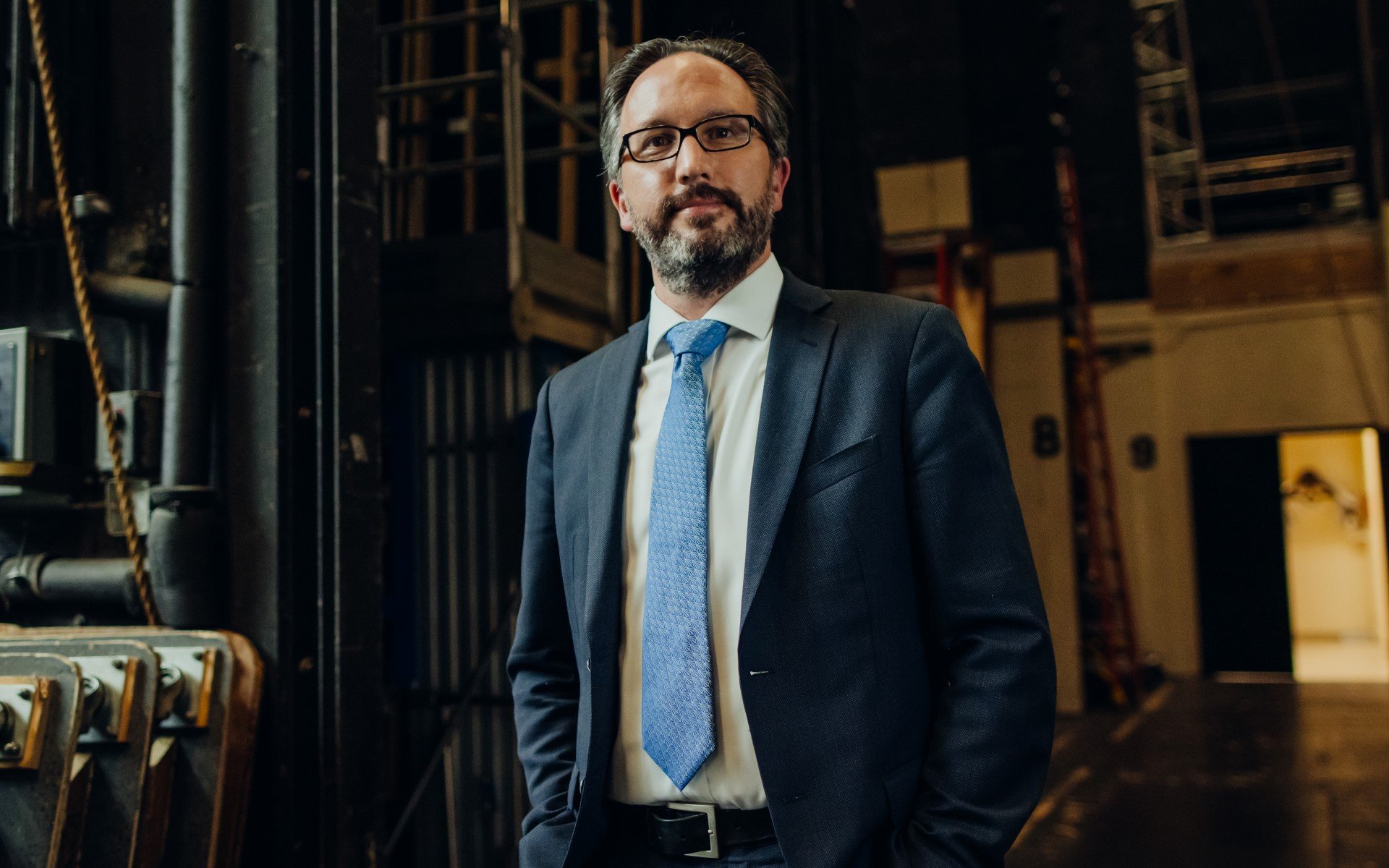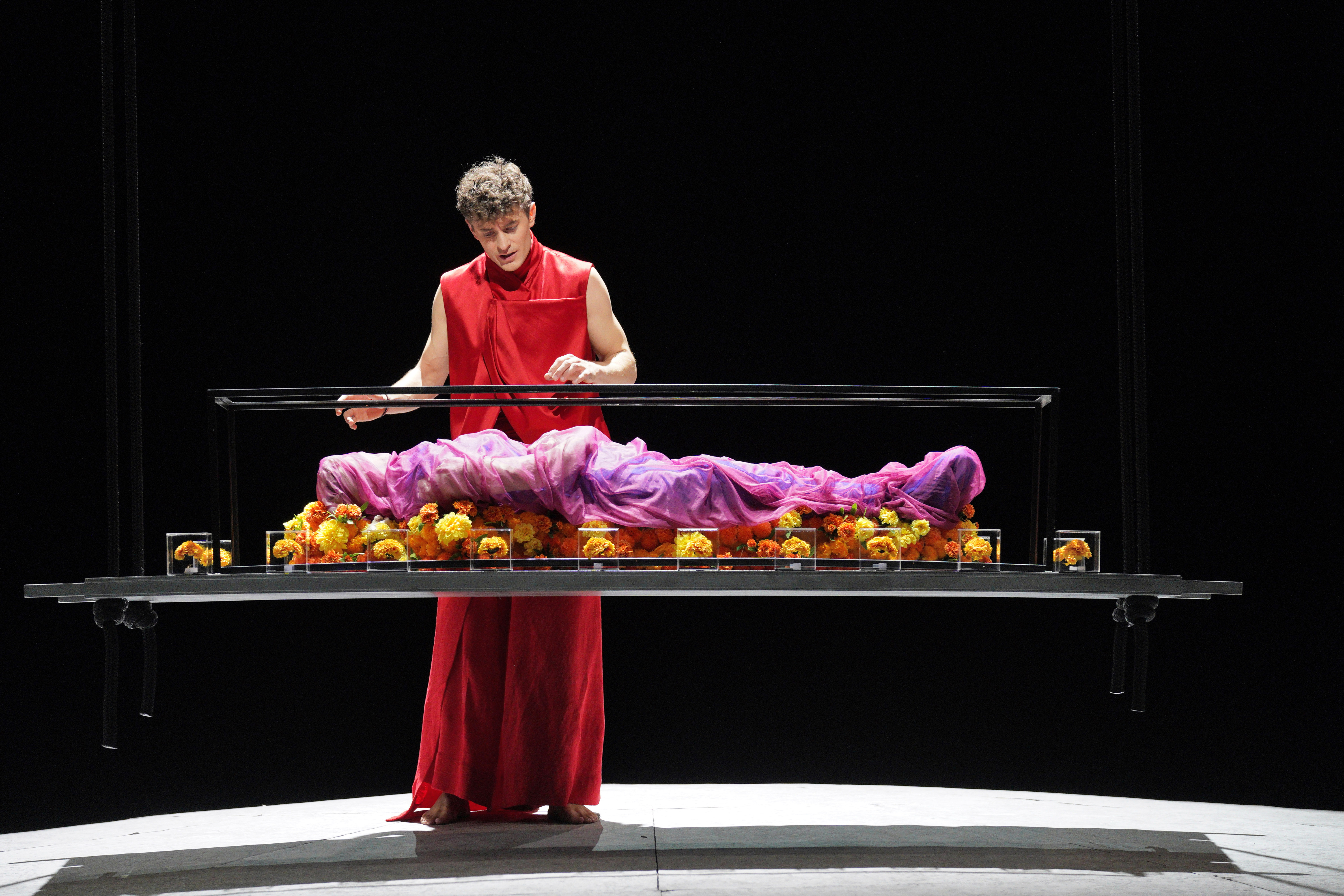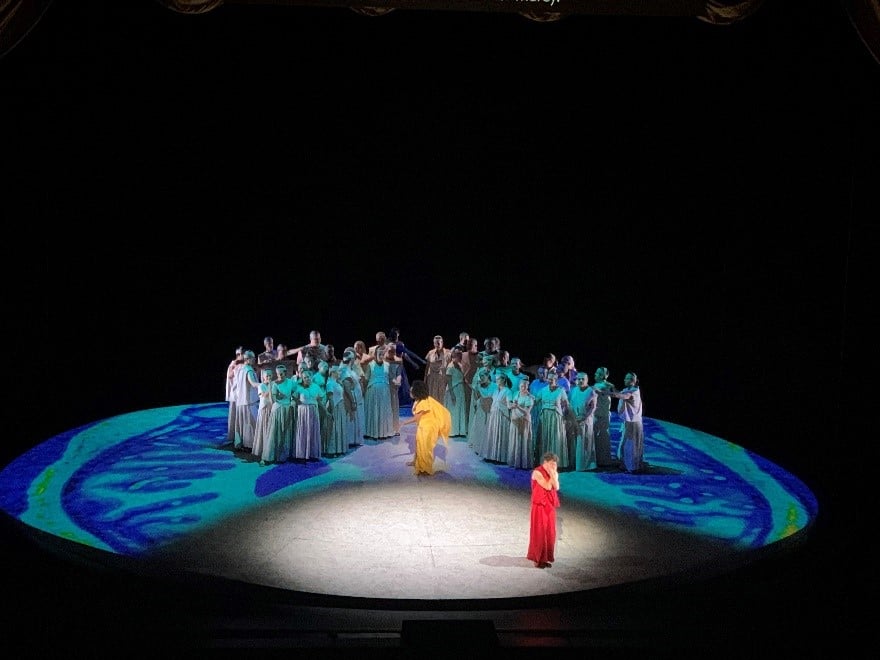Backstage with Matthew: Journeying through the soul


Orpheus and Eurydice plays an important role in the history of opera, bridging from the baroque to the classical, stripping away virtuosic effect in favor of poignant simplicity. Orpheus’s famous aria “Che faro senza Euridice” is a perfect exemplar of that, and you can hear our countertenor Jakub Józef Orliński singing it just a few months ago in Paris in a different production. The opera is barely 80 minutes in length without intermission, and every second of it is crafted with exquisite perfection, propelling us along with Orpheus on his journey into Hades and Elysium to find his beloved wife Eurydice, who has died tragically young.
In this new production, director Matthew Ozawa (who also brought us the Barber of Seville in Marin, and Fidelio last year), has crafted the opera as a psychological journey through Orpheus’s grief. What is most extraordinary is how every element of this journey—music, movement and visuals—combines in absolute synergy. It’s as though you can’t tell where one art form begins and ends. This synergy was right there from the very start. When the design team shared their designs with us in January this year, it was the most holistic, integrated design presentation many of us had ever seen. We knew we were on the cusp of something profound and connected.

Grief is an emotion we will all experience, but one that is so hard to talk about and to share. Matthew Ozawa and the creative team spent months going deep into traditions of death and grief in many cultures in the world, and have woven many of these into the production. An important book that Matthew drew upon was Joanne Caccitore’s Bearing the Unbearable: Love, Loss and the Heartbreaking Path of Grief. It is a collection of first-hand accounts of grief and how grief can open us to connection and compassion. In this interpretation of the opera, Orpheus is not ultimately reunited with Eurydice in life. Rather Orpheus comes to a place of catharsis, of acceptance, of understanding. Through Love he finds connection to his wife even after her death, and an understanding that she will always be with him, even if not physically or temporally. It is a beautiful conception of the work.

The set is a meditative rotating disc designed by Alex Nichols, undulating with the topography of Orpheus’s mind. Onto the disc are projected real brain scans and neural networks, shared with us by our friends at UCSF and beautifully integrated with the lighting design of debuting lighting designer Yuki Nakase Link. We are literally inside Orpheus’s mind, and the effect is transcendent. You get a sense here of the effect. Everything is concentrated into a world ever changing, but ever the same.

Although the cast is only three principal singers (countertenor Jakub Józef Orliński, soprano Meigui Zhang—watch Meigui’s In Song episode here, and soprano Nicole Heaston), Orpheus’s journey is filled with chorus and dance—the full community of his memory. In the tradition of French Baroque opera, ensembles are vital to Orpheus, and this opera has some of the most wonderful choral moments. For example, here.

Dance is another layer of continual unfolding in the piece, and we’re thrilled to welcome choreographer Rena Butler not only to San Francisco Opera but to the art form, with this being her first opera. I am in complete awe at what she is creating. Six dancers are doubles of our protagonists, costumed in gradated colors of the same costumes to reflect different stages of life. Their movement is intertwined, seamless, creating forms and emotions from Orpheus’s memory. It is a privilege to have Rena’s artistry shaping the energy of this production.

Our dancers in rehearsal with choreographer Rena Butler.

Orpheus himself is onstage every minute of this production and this extraordinary synergy between music and movement is uniquely embodied in Polish countertenor Jakub Józef Orliński. Jakub was supposed to make his American professional debut with us in 2020 in Partenope and I am overjoyed he’s with us now for Orpheus. Jakub is a complete artist, who uses his entire physicality to support his artistry. In addition to having one of the most sublime countertenor voices I’ve ever heard, he is also an accomplished break dancer, and you will experience both in this production. You can get a glimpse of Jakub’s dancing here, and his singing here in a Vivaldi aria that has had almost 10 million views!


The costumes by Jessica Jahn are stunning. Abstracted, flowing, otherworldly, they take us out of temporality and into something much more profound. The chorus have a number of looks, and their design for Elysium has a particularly meaningful story to it. Each chorister wears a full body veil for this scene—a gossamer like fabric that enshrouds them and gives a sense of formless beings. Reflecting on the idea of journey through memory, Jessica had the fabric printed with images of the creative team’s loved ones—family members no longer with us but still guiding, shaping, influencing. It is a beautiful honoring within the very design of the show.


Our maestro, Peter Whelan, brings wonderful Baroque experience from Ireland, where he is the artistic director of the Irish Baroque Orchestra. There is a lightness of being, a freedom to his interpretation, teasing out the vital energy of Gluck’s score. You can get a sense of the energized momentum of Gluck’s score in the overture and we move from propulsion to deep pathos and back again throughout the work.
These are the component parts of this Orpheus but what is most important is how everything synergistically weaves together and the resulting metaphysical journey. I was in tears watching the piano dress rehearsal, feeling so much personal connection to my own experiences with grief, and feeling a sense that I was unlocking something deep in myself.

Over the last few years I have got to know the writing of Buddhist monk Thích Nhất Hạnh. In his book No Death, No Fear, he writes a passage that, to me, is the ultimate place that Orpheus comes to on this journey. A sense that, even amidst the most profound grief, we are forever bound in beautiful synergy with those we love. That is at the heart of this opera, and particularly of this production in the way it is being so beautifully, so sensitively crafted. I invite you to come and be a part of this most transcendent of experiences. Please join us.
“This body is not me; I am not caught in this body, I am life without boundaries, I have never been born and I have never died. Over there the wide ocean and the sky with many galaxies, all manifests from the basis of consciousness. Since beginningless time I have always been free. Birth and death are only a door through which we go in and out. Birth and death are only a game of hide-and-seek. So smile to me and take my hand and wave good-bye. Tomorrow we shall meet again or even before. We shall always be meeting again at the true source, Always meeting again on the myriad paths of life.”
― Thích Nhất Hạnh, No Death, No Fear


